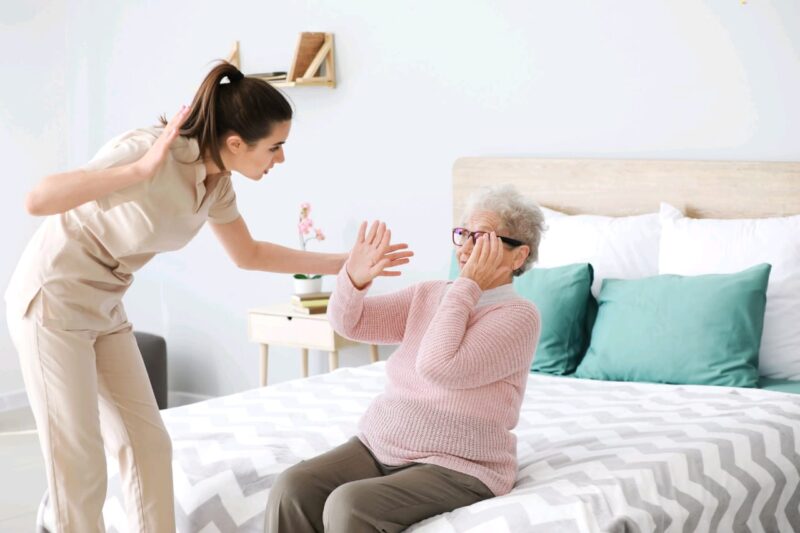If you have a loved one in a nursing home, or if you work in one, you know just how important it is to stay on top of nursing home abuse and neglect.
Nursing home abuse is unfortunately common, as more than 40% have reported some form of it. These situations range in severity, but the outcomes can be devastating.
Because of this, you need to learn all you can about preventing and reporting it.
These tips will help you learn about the signs of nursing home abuse and how to take action if you notice them.
Recognize the Signs of Nursing Home Abuse
Before running out to hire a nursing home abuse lawyer, you’ll need to understand some of the signs. Some are more subtle than others, but there are some telltale signs that are common that you should pay attention to.
Here are some of the signs:
Their Hygiene Is Slipping
Pay careful attention if you notice that a loved one doesn’t have the same level of hygiene that they once did. In many situations, this can point to signs of abuse.
Some elderly caretakers allow a resident to be neglected to the point that their hygiene is ignored. The elderly patient has to fend for themselves, which is difficult for a person who needs care or has limited mobility.
If you have a family member in a nursing home, place regular visits, pay close attention to their hygiene, and ask questions about the care they have been receiving.
Bedsores and Mobility Issues
When a person has to lie down in bed for long periods of time without moving, they are more likely to develop bedsores. These sores range from mild to stage four.
They can lead to ulcers that develop because of the pressure of their body against the mattress. Bedsores can become incredibly painful and uncomfortable.
Also, consider any mobility issues the patient is having. People start to lose some mobility if they’re constantly in bed and never get the chance to move around.
Bruises and Broken Bones
Some physical symptoms are glaringly obvious. If they have bruises, welts, broken bones, fractures, or other injuries, this could also be a sign that they have been experiencing abuse.
This is more alarming and is a sign that the patient’s life is in more immediate danger.
Document What You See
There are many other forms of nursing home abuse as well. These matters aren’t always cut and dry, and you will still need to have as much factual information moving forward as possible.
Document every instance of abuse signs that you notice, where you were when you found out, how you found out, and detail any of these signs as much as possible. Transparency and documentation help prevent nursing home abuse.
Keep a log and archive documenting everything you know.
Call the Authorities if It’s an Emergency
Aside from building a court case, remember that your main priority is to help a person who is in harm’s way. If the abuse that you find is an immediate emergency, get in touch with police or other law enforcement as quickly as possible.
They will take statements and help pursue possible legal action, so make sure that you learn how to report nursing home abuse as soon as it happens. Treating it like the emergency it is will also help the person get away from harm and the resources that they need to recover and move past the trauma.
You should also treat it like an emergency if the patient’s injuries are urgent or potentially life-threatening.
Get as Much Evidence as Possible
Outside of you writing down what happened, make sure that you also compile plenty of hard evidence. Planning out an elder abuse and neglect case can backfire if you try to move it forward without taking your time and gathering as much evidence as possible.
At a minimum, make sure that you take photos and video evidence and ask the patient questions on the record.
Report the Situation
One of the most difficult yet necessary things to do is to report your findings. You may need to report it to the Human Resources (HR) department, your work superiors, other parties, or another organization.
You must note the date and time of the incident and report it so that you have it on record. This allows you to build a case that you can reference and formalizes the complaint.
Prepare to Take the Next Steps
Once you have reported the situation, make sure that you are prepared to take any necessary steps forward. This could mean pressing charges with the help of local authorities. There may also be civil damages that you can seek.
The best thing you can do is reach out to a lawyer familiar with these types of cases so that you can get guidance on how to proceed. They can also represent these interests if you decide to pursue legal recourse.
Learn all about preventing nursing home abuse but be ready to take action if you witness or find out about the incident.
Stop Abuse in Its Tracks
Noticing situations of nursing home abuse can help you protect someone who may not be able to protect themselves. Stay vigilant and consider these tips in the event that nursing home abuse hits close to home.
Bookmark our website and come back for more articles on various life topics.










